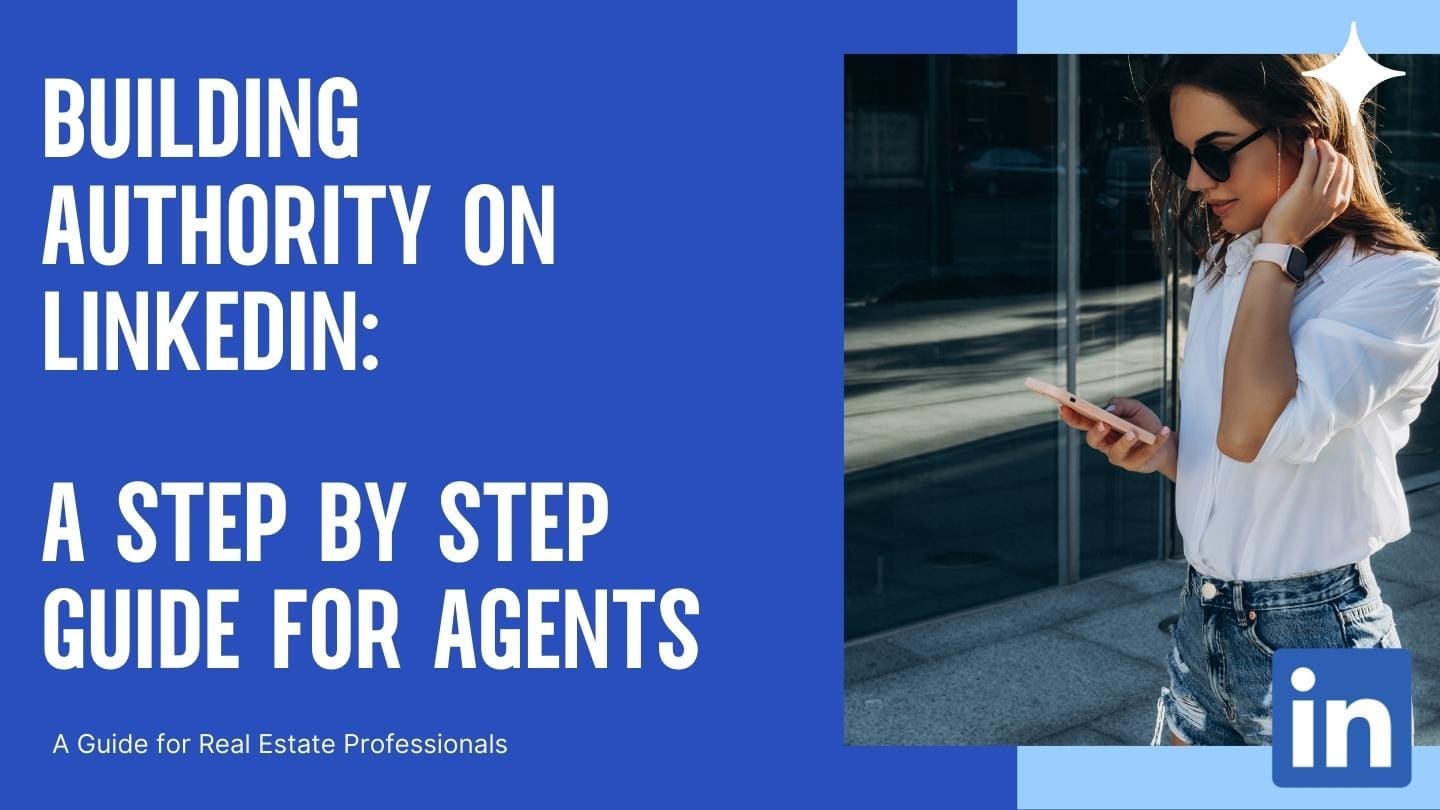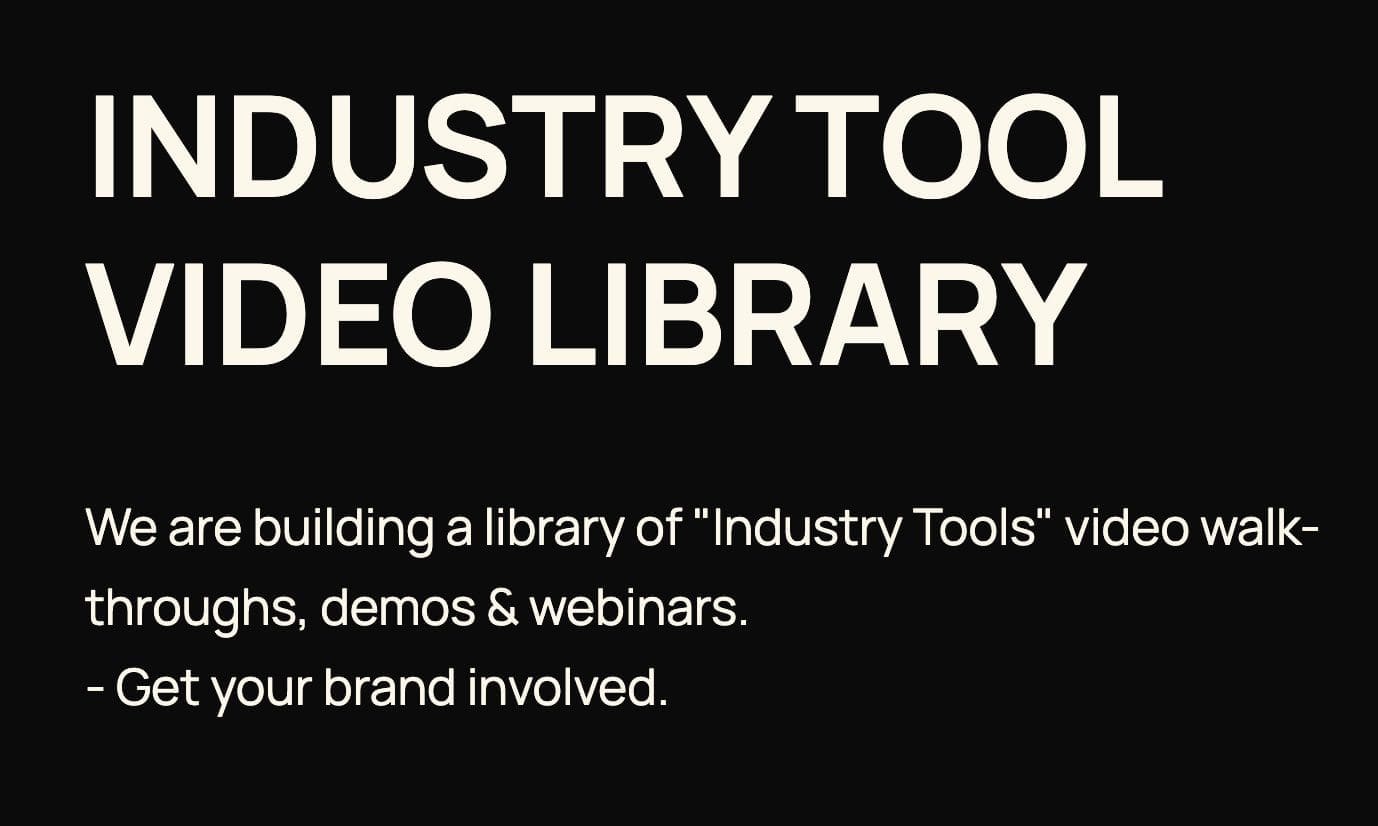AI Learning Centres:
- AI – Learn The Basics
- Get The Most From ChatGPT
- Branding in The Age of AI
- AI for Client Experience
- AI For Prospecting
- AI For Marketing
- AI For Listings & Ads
- Team Adoption of AI
- AI For PM
- AIO & Generative Search
- AI For Operations & Efficiency
- AI For Market Research & Analysis
- AI Ethics, Privacy & Compliance in Real Estate
Digital Marketing & Social Media Learning Centres:
Guides & Downloads

Building Authority on LinkedIn: A Step by Step Guide for Agents
LinkedIn has evolved far beyond being a platform for job hunters. Today, it is one of the most trusted spaces for professionals to showcase expertise, build networks, and influence decisions.
For property professionals, LinkedIn is a stage to prove credibility, share knowledge, and position yourself as the go-to voice in your market.
Building authority on LinkedIn is not about quick wins or one-off posts. It is about creating a consistent and thoughtful presence that shows your value over time. When done well, LinkedIn can generate referrals, attract buyers and sellers, and even bring opportunities for speaking, partnerships, or media exposure.
This guide takes you step by step through how to build strong authority on LinkedIn as a property professional.
Step 1. Perfect Your LinkedIn Profile
Your profile is your first impression. It should clearly communicate who you are, what you do, and how you help. Think of it as your digital shopfront.
Key areas to optimise:
Profile photo: Choose a high quality headshot where you look approachable and professional. Avoid casual photos.
Cover banner: Use this space strategically. It could include a photo of your local suburb skyline, a branded image with your agency, or even a market message like “Helping families move with confidence.”
Headline: This is more than just “Real Estate Agent.” Make it value-based, for example: “Helping homeowners in Brisbane achieve premium results” or “Trusted property advisor specialising in downsizing transitions.”
About section: Write in the first person. Explain who you help, how you do it, and what sets you apart. Share your story, values, and passion for property.
Experience and results: Include specific achievements. Instead of only listing your agency role, highlight awards, sales milestones, or testimonials.
A strong profile builds instant trust before people even read your posts.
Step 2. Define Your Audience and Goals
You cannot be everything to everyone. Authority comes from clarity. Decide who you most want to reach.
Sellers: Share insights on market timing, presentation, and achieving premium results.
Buyers: Offer guidance on finance, negotiation, and suburb comparisons.
Investors: Provide data-driven posts on yields, growth areas, and long-term value.
Professional partners: Connect with mortgage brokers, accountants, and business owners who may refer clients.
Also set goals: Do you want to generate appraisal leads, attract investors, or simply build a strong personal brand? Goals shape the type of content you should focus on.
Step 3. Create Valuable and Relevant Content
Authority is built by becoming a trusted source of knowledge. Every post should add value, not just promote yourself.
Types of content to share:
Market insights: Weekly updates on local sales volumes, clearance rates, or suburb trends.
Educational posts: Explain topics like “What rising interest rates mean for homeowners” or “5 things buyers overlook during inspections.”
Success stories: Share case studies of how you helped a client achieve a strong result.
Behind the scenes: Show the effort that goes into preparing a property for sale, building trust through transparency.
Thought leadership: Comment on national housing policy, market affordability, or economic changes that affect property.
Practical tip: Create a content calendar. Plan posts in advance so you remain consistent.
Step 4. Commit to Consistency
LinkedIn rewards consistency. Sporadic posting will not build authority. Aim for:
3 to 4 posts per week spread across different days.
Regular themes such as Monday market insights, Wednesday client stories, and Friday quick tips.
Daily engagement: Even if you do not post, spend 10–15 minutes engaging with others.
Consistency trains your audience to expect your insights and builds recognition over time.
Step 5. Diversify Content Formats
People consume information differently. Mix up your approach to appeal to a wide audience.
Short text posts: Share bite-sized tips or lessons learned.
Long form articles: Write deeper guides on property trends, investment strategies, or suburb spotlights.
Videos: Record short clips explaining current market conditions or answering common questions.
Infographics: Summarise data such as median prices or auction results into a visual chart.
Polls: Ask engaging questions such as “What do you think will happen with property prices this quarter?”
By varying your format, you avoid becoming repetitive and encourage more interaction.
Step 6. Build Engagement, Not Just Reach
Authority is not about the number of people who see your posts. It is about the quality of your conversations.
Ways to boost engagement:
Respond to comments: Reply thoughtfully to everyone who engages with your post.
Comment on others’ posts: Add valuable insights instead of just “Great post.”
Join groups: Be active in local property, investment, or business groups.
Congratulate others: Use the platform’s notifications to comment on work anniversaries or achievements.
This shows you are approachable and builds genuine relationships.
Step 7. Use LinkedIn Features Strategically
LinkedIn provides tools that can extend your authority. Use them wisely.
Hashtags: Always include 3–5 relevant hashtags such as #realestate, #propertymarket, and your suburb.
Tagging: Mention local businesses, photographers, or partners to increase reach.
Newsletters: Create a regular property-focused newsletter to share deeper articles and attract subscribers.
Analytics: Monitor post views, engagement, and profile visits to refine your approach.
These small actions compound over time to grow your influence.
Step 8. Position Yourself as a Thought Leader
True authority goes beyond posting listings or tips. It comes from being seen as a voice worth listening to.
Ideas to build thought leadership:
Share your personal perspective on housing affordability, downsizing trends, or investor confidence.
Publish guides such as “How to prepare your home for sale in 30 days.”
Offer free checklists or reports as LinkedIn posts, building trust before asking for business.
Host LinkedIn Live Q&A sessions where you answer questions about the property market.
This level of content separates you from agents who only post promotional material.
Step 9. Use AI Tools to Support Your Efforts
Many property professionals struggle with time. AI can help without removing authenticity.
How AI tools like ChatGPT can support you:
Generate LinkedIn post drafts tailored to sellers, buyers, or investors.
Summarise market reports into short and simple updates.
Suggest engaging headlines for your articles.
Repurpose website blog content into LinkedIn-friendly versions.
Important: Always add your own perspective. AI can help with structure and ideas, but your authority comes from your personal expertise.
Step 10. Measure Results and Refine
Building authority is a journey, not a single campaign. Track your progress regularly.
Monitor profile views and connection requests.
Review which posts received the most engagement or shares.
Test different post times and formats to see what resonates.
Adjust your strategy quarterly based on data and audience feedback.
With each cycle, your presence becomes sharper and more effective.
LinkedIn is one of the most powerful yet underused platforms for property professionals. It allows you to showcase your expertise, build trust with your community, and attract new business without relying only on advertising.
By creating a strong profile, sharing valuable content consistently, engaging with others, and leveraging AI tools to save time, you can position yourself as an authority in your local property market.
Remember: authority is built one post, one comment, and one connection at a time. Over the months and years, those small steps create a reputation that will set you apart and ensure people come to you first when they are ready to buy, sell, or invest.
Author Ken Hobson
ken@agentslibrary.com.au






